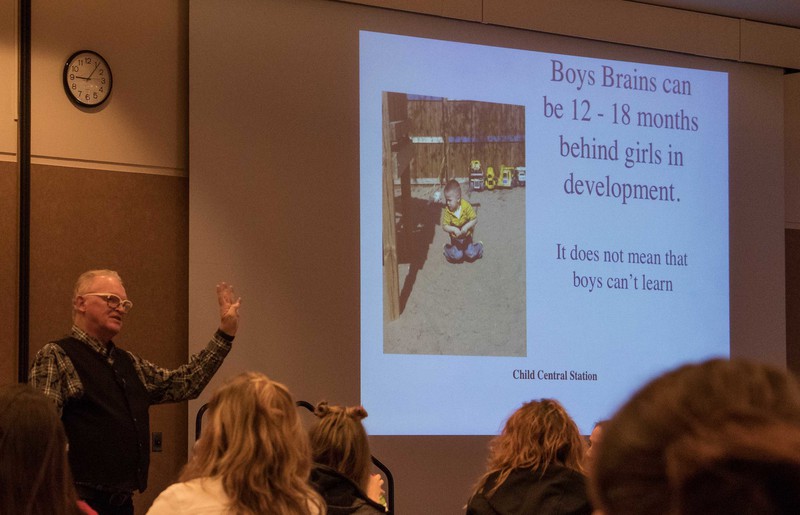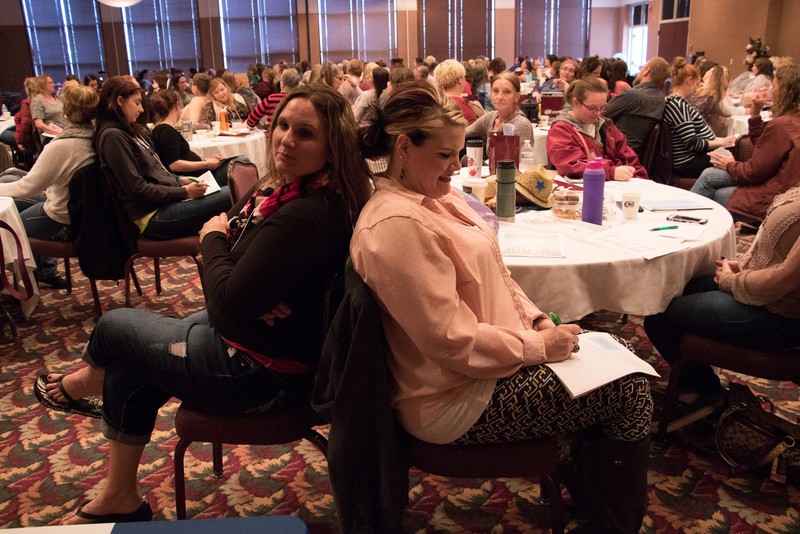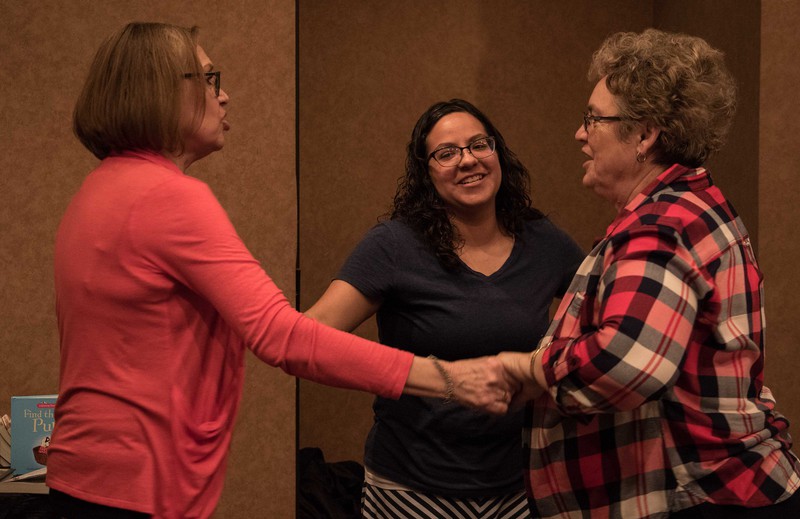Speaker offers advice for teaching pre-schoolers

CHADRON – Keynote speaker Daniel Hodgins led two sessions Saturday during Chadron State College’s 28th annual Excellence in Early Childhood Conference. Hodgins' morning session featured cognitive, behavioral and learning differences between pre-school boys and girls. In the afternoon, he provided strategies to successfully work with children who are seeking power.
About 260 representatives of Head Start, Early Head Start, private child care centers, family child care homes, CSC and public school pre-schools attended both Friday's pre-sessions and Saturday's main session, according to Dr. Kim Madsen, organizer of the event. She said some participants traveled from as far away as Hayes Center, Kansas.
Hodgins said there are several key differences in the way boys and girls learn about the world around them. He said girls are more verbal and learn while talking, and boys need to be active and loud. Girls also notice more details in visuals and oral instructions. He said instructions for boys should not be multi-faceted, but single actions should be described such as “put your work away” and then “go outside to play” as a later standalone instruction.
He said the most important fact for attendees to remember is every child is looking for what he or she is good at.
"If Johnny is good at biting, give him a frozen washcloth to bite. If he's good at hitting, give him empty boxes to hit. If he's good at pushing, give him carts to push. By redirecting the behavior instead of trying to stop it you avoid a power struggle and celebrate what he is good at," Hodgins said.
He used an example of a pre-school boy who has hit another child.
“The boy doesn’t yet have the moral understanding that it’s wrong to hit. So you should say, ‘Johnny, run and get the ice pack,’ because that gives him something important to do that’s active and indirectly he’s helping you care for the child he hit,” Hodgins said.
After introducing new ideas or challenging traditions of the audience members, Hodgins repeated the phrase that is also the title of one of his books, “Get Over It!”
“(Children) are only interested in themselves at this stage. It doesn’t make sense to try to make them behave like they are interested in others,” said Hodgins, who does not celebrate Valentine’s Day by trying to make children give others cards or candy. “Keep things at the developmental level, not the moral level, because they don’t understand that yet.”
On another topic, Hodgins said he disagrees with traditional belief that pre-school children should clean up their messes.
He said there is no evidence to demonstrate that children who do not clean up their messes grow up to be disrespectful. Hodgins said he would rather spend 20 minutes cleaning a room after the children leave than spend 45 minutes in a power struggle trying to get the children to clean. He added if a child enjoys cleaning, he or she should be allowed to do so.
Category: Campus Events, Campus News, Education, Family and Consumer Sciences


